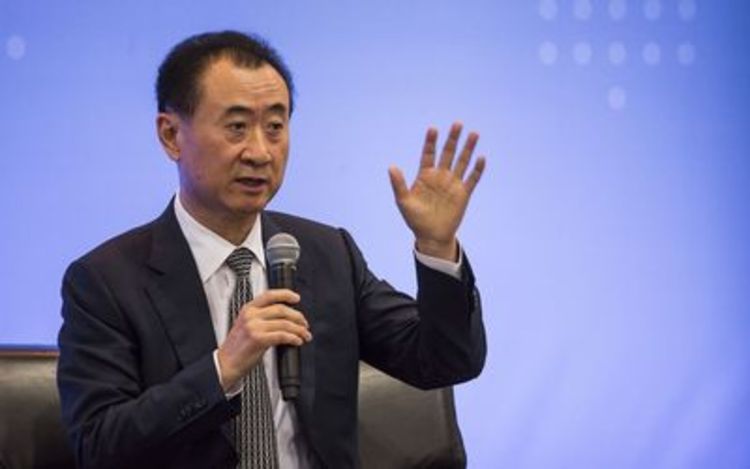
The Sunday Mail

ABOUT three years ago, one of China’s richest men could not believe he was offered a large plot of floor space in London along the River Thames for £900 per square metre, less than half he would pay in Beijing, as long as he paid the deposit in cash within seven days.
He did it in three.
Today, in the Nine Elms area where billionaire Wang Jianlin’s Dalian Wanda Group is developing a five-star hotel and a residential skyscraper, the US embassy is moving in, and home builders are seeking to sell homes at about £14,350 per square metre.
Wang, who shared the anecdote with Oxford University students last month, credited his ability to pull off that deal to something his business is not: a bloated Chinese state-owned enterprise (SOE) needing layers of approvals.
This helps illustrate why Chinese President Xi Jinping is seeking to overhaul the $18-trillion SOE sector to revive an economy that is growing at the slowest pace in more than two decades.
“Decision-making needs to be swift,” Wang, who vies with Alibaba Group Holding’s Jack Ma for the top wealth ranking among China’s tycoons, said at the Oxford event.
“At SOEs, many managers are afraid of taking responsibility, resulting in delays in decisions.”
China announced last year that it would kick off the process of overhauling state companies by categorising them into commercial or public-service entities, a move that has prompted many SOEs to seek discussions with regulators over how they should be classified.
These talks are bound to heat up in Beijing this week at the National People’s Congress, the Chinese government’s biggest gathering of the year.
For China’s many SOEs — JPMorgan Chase has estimated there are more than 15 000 of them — the stakes are high.
Being branded as commercial could lead to higher salaries in some sectors and less government-meddling, but also deprive a company of cheap financing and state protection in the event business sours, as is increasingly the case in China’s slowing economy.
“This categorisation will impact SOEs and their business models, because commercial companies will face higher pressures to make profits, and public ones will need to focus on social benefits,” says Zhou Jingtong, director of macroeconomic research at Bank of China.
“It will also influence investor decisions when they buy SOE bonds and shares because commercial companies will be riskier options.”
The likelihood of state support is already Factored in for some SOEs’ debt ratings.
For example, Standard & Poor’s (S&P) rates Aluminum Corporation of China, China Railway Group, China General Nuclear Power Corporation and Citic Group as investment-grade issuers, although each would be rated junk purely based on their financials, according to an S&P report in January.
The idea behind the dual categorisation, announced in September, is for the government to control public-interest companies and turn the rest into more market-oriented firms by loosening oversight and making them accountable for their performance.
The Chinese government has given some guidelines on how it will decide.
For example, to qualify as a non-commercial company, its business would need to serve the public, and the government would control the entity’s core operations and prices of “necessary products and services”.
While that makes companies such as China General Nuclear, which manages nuclear power stations, obvious candidates for being classified as public interest companies and car maker Dongfeng Motor Corporation for being categorised as commercial, the choice becomes less clear for companies in industries such as oil and telecommunications.
The state will give exemptions to some SOEs that become categorised as commercial, but have businesses of strategic national interests.
State-owned Assets Supervision and Administration Commission (Sasac), which oversees SOEs, did not respond to requests for comment.
Sinopharm Group, China’s biggest drug distributor, is among SOEs making preparations to be categorised as commercial, and the company would benefit from further liberalisation in the drug market, according to a person familiar with the matter.
Asked to comment, Sinopharm says it is still awaiting final approval from Sasac on its reform proposal to experiment with mixed ownership, which would help the distributor improve as a company.
Although individual cases vary, SOEs in China are ripe for reform. While they generated profits of 2,3-trillion yuan or US$352 billion last year — more than SA’s entire economy — that is still down 6,7 percent from a year earlier and those returns were only1,9 percent of the 119,2-trillion yuan in assets they hold, according Sasac figures.
Industrial profits at SOEs have also fallen for 14 consecutive months, while the last time earnings declined in the private sector was more than three years ago.
SOEs are also less adept than private companies at cutting debt, according to research at the Chinese University of Hong Kong.
The last time the government overhauled its SOEs, when then-premier Zhu Rongji spearheaded the campaign in the 1990s, about 60 000 companies were closed and 40-million workers lost their jobs, according to government data. Still, the purge paved the way for China’s economy pick-up.
“I’m more interested in companies that can survive and profit without government support,” says Liang Weihong, a fund manager at Huashang Fund. – Bloomberg.



